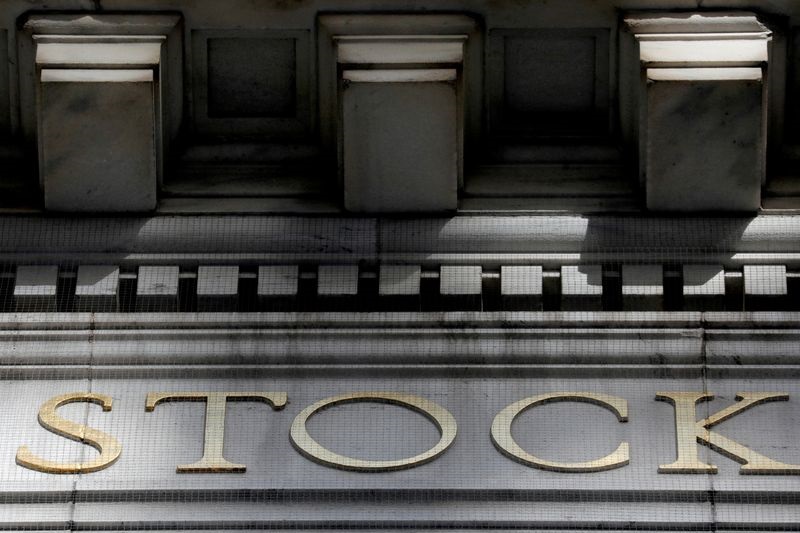Stocks fell overnight on Wall Street with the ‘fear’ index on red alert and global oil prices rising as the risk of a broader conflict in the Middle East grew.
There were also signs that the Fed may be reconsidering its position on rates, which didn’t help.
Australian shares look set to open lower, with ASX futures pointing to a -0.05% drop to 8,233 points.
The Dow Jones index fell by 398.5 points or 0.9%, the S&P 500 dipped 1% and the Nasdaq lost 1.2%.
Magnificent Seven stocks decline
The spike in yields hit megacap growth stocks with the 'Magnificent Seven' stocks index dropping 1.9%.
Tesla (NASDAQ:TSLA) fell 3.7% and Alphabet (NASDAQ:GOOGL) lost 2.4% after a judge ordered the company to remove restrictions limiting competition with its Google Play Store.
Amazon (NASDAQ:AMZN) shares dropped 3% following a downgrade by Wells Fargo (NYSE:WFC), which cited concerns over margins heading into next year.
Insurance stocks also suffered with Everest Group tumbling 8.5%, Arch Capital losing 6.2% and Travelers (NYSE:TRV) down 4.3% amid growing concerns over Hurricane Milton’s path towards Florida.
Conversely, Super Micro Computer saw its shares jump 15.8% on strong shipment data.
In Europe, share markets advanced, led by a 1% gain in banking stocks, while real estate and utilities sectors lagged.
Danish wind farm developer Orsted surged 6% after Equinor bought a stake worth US$2.5 billion.
The continent-wide FTSEurofirst 300 index rose 0.3% as did the UK FTSE 100, buoyed by a 2% rise in energy stocks.
Currencies and commodities
Global currencies were mixed against the greenback in European and US trade, with most currencies up against the US dollar except ours.
The Euro was up from US$1.0955 to US$1.0986 and landed near US$1.0975 at the US close and the yen rose from 148.68 yen per US dollar to JPY147.86 and was near JPY148.10 at the US close.
The Aussie dollar, by contrast, fell from 68.06 US cents to 67.53 US cents and was near 67.55 US cents at the end of yesterday’s trade.
Global oil prices rose, with Brent crude up 3.7% to US$80.93 a barrel. Meanwhile, iron ore futures gained 3.3%, boosted by expectations of Chinese economic stimulus measures.
In Australia, markets await business and consumer confidence surveys alongside the Reserve Bank of Australia's meeting minutes.
Market expectations for a 25 basis-point (bps) rate cut by the Federal Reserve at its November meeting currently stand at 84.6%, according to CME’s FedWatch tool.
But the chances of the Fed holding rates steady have increased to 15.4%, a significant shift from just a week ago, when markets fully expected a cut of at least 25 bps and a 34.7% chance for an additional 50 bps cut.
This change in sentiment follows stronger-than-expected US jobs data, which has led traders to adjust their rate cut expectations and pushed Treasury bond yields higher.
The US stock market has been impacted by this recalibration with the recent economic strength paradoxically weighing on stocks.
Gennadiy Goldberg, chief US rates strategist at TD Securities, noted that "the market very quickly flipped from talking about a 50 basis-point cut to possibly no cut in November, just based on the strength of the data," adding that it would be unusual for the Federal Reserve to back off additional cuts so soon after implementing a 50 bps cut in September.
Market snapshot
- Australian dollar: -0.6% to 67.55 US cents.
- Wall Street: Dow Jones (-0.9%), S&P 500 (-1%), Nasdaq (-1.1%).
- Europe: FTSE (+0.3%), Stoxx 600 (+0.2%).
- Spot gold: -0.4% to $US2,641/ounce.
- Brent crude: +3.9% to $US81.10/barrel.
- Iron ore: +4.9% to $US114/tonne.
- Bitcoin: +1.3% to $63,178.
Source: ABC
What’s happening in small caps?
